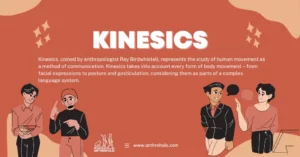AI Answer Evaluation Platform Live Now. Try Free Answer Evaluation Now
Marriage and Mating
Marriage and mating are fundamental aspects of human society. The union of two individuals creates a family unit, which forms the building blocks of society. The purpose of this article is to explore the significance of marriage and mating in today’s world, including their historical evolution, current trends, benefits, and challenges. Additionally, the article will discuss how to choose a mate, the role of culture and religion, and what the future may hold for marriage and mating. Overall, this article aims to provide readers with a comprehensive understanding of the importance and complexities of marriage and mating.

Historical perspective
Marriage and mating practices have evolved throughout history, with significant changes in societal attitudes towards these institutions. Historically, marriages were often arranged by parents for economic or political reasons, and mating was regulated by social norms and customs. Over time, the idea of romantic love and individual choice became more prevalent, leading to a shift towards love marriages. Culture and religion have also played a significant role in shaping marriage and mating practices, with varying beliefs and customs influencing the way people approach these institutions. The impact of culture and religion on marriage and mating practices is complex and continues to evolve in contemporary society.
Current trends
Current trends in marriage and mating show a shift towards greater individual choice and independence. Many people are delaying marriage, choosing to focus on education and career goals first. There is also a rise in non-traditional relationships, including cohabitation, open marriages, and same-sex marriages. Attitudes towards marriage and mating have also changed, with greater acceptance of non-traditional relationships and a decreased emphasis on gender roles. Technology has also had a significant influence on marriage and mating, with online dating apps and social media platforms allowing people to connect with potential partners in new ways. However, technology also presents challenges, such as the potential for infidelity and the impact of social media on relationship dynamics.
Benefits of Marriage
Marriage offers a variety of benefits, including emotional, financial, and social benefits. Emotionally, marriage provides a sense of security, intimacy, and companionship. Having a spouse can also provide emotional support during difficult times, leading to improved mental health outcomes. Financially, marriage can offer tax benefits, shared financial resources, and a more stable financial future. Socially, marriage can provide a sense of belonging and community, with spouses often sharing social networks and activities. Additionally, married couples may be viewed more positively by society, leading to increased social status and respect. Overall, marriage offers a range of benefits that can enhance an individual’s overall quality of life.
Challenges
While marriage has many benefits, it also comes with its own set of challenges. These include communication issues, infidelity, and conflict resolution. Navigating these challenges requires effort, commitment, and effective communication skills.
Choosing a Mate
Choosing a mate is a complex process that requires careful consideration of various factors. Some key factors to consider when choosing a mate include shared values, interests, and goals, as well as compatibility in areas such as communication style, emotional needs, and life goals. Compatibility is particularly important as it can impact the longevity and quality of a relationship. Physical attraction also plays a role in mate selection, with many people placing a high value on physical appearance. However, it’s important to consider other factors beyond physical appearance, as a successful relationship requires more than just physical attraction. Ultimately, choosing a mate requires self-reflection, open communication, and a willingness to compromise and grow together.
The Role of Culture and Religion in marriage and mating
Culture and religion play a significant role in shaping marriage and mating practices. Cultural values and beliefs about gender roles, family dynamics, and sexuality can influence how individuals approach relationships and marriage. Religion also plays a role in shaping attitudes towards marriage and mating, with many religious traditions emphasising the importance of marriage as a sacred bond. However, different religions have varying views on sexuality, gender roles, and the role of marriage in society. Cross-cultural marriages can also present challenges, as partners may have different expectations and beliefs about marriage and relationships. Understanding the impact of culture and religion on marriage and mating practices is crucial for building successful and fulfilling relationships.
[Geary, D. C. (2018). The evolution of human mating and its psychological implications. The Oxford handbook of evolutionary psychology and behavioural endocrinology, 263-280.]
The Future of Marriage and Mating
The future of marriage and mating is likely to be shaped by emerging trends and advances in technology. One emerging trend is the increasing acceptance of non-traditional relationships, including polyamory and open relationships. Technology will also continue to play a significant role, with new dating apps and virtual reality experiences changing how people connect with potential partners. However, technology also presents challenges, such as the potential for increased social isolation and decreased intimacy. Changes in societal attitudes towards marriage and mating are also likely, with a greater emphasis on individual choice and gender equality. Overall, the future of marriage and mating is likely to be shaped by a combination of emerging trends and evolving societal attitudes. [Brathwaite, A., & Montañez, E. (2018). A critical review of theory and research on millennial romantic relationships. Journal of Couple & Relationship Therapy, 17(1), 1-19.]
Conclusion
In conclusion, this article has discussed the historical perspective, current trends, benefits and challenges, mate selection, the role of culture and religion, and the future of marriage and mating. Marriage and mating play a significant role in society and impact an individual’s emotional, financial, and social wellbeing. The future of marriage and mating is likely to be influenced by emerging trends and advances in technology, and an evolving societal attitude towards relationships. Ultimately, successful and fulfilling relationships require effort, commitment, and effective communication skills.
References
- Finkel, E. J., Hui, C. M., Carswell, K. L., & Larson, G. M. (2014). The suffocation of marriage: Climbing Mount Maslow without enough oxygen. Psychological Inquiry, 25(1), 1-41.
- Gottman, J. M., & Silver, N. (2015). The seven principles for making marriage work. Harmony.
- Hendrick, S. S., Hendrick, C., & Adler, N. L. (2013). Romantic relationships: Love, satisfaction, and staying together. Routledge.
- Regan, P. C. (2017). The mating game: A primer on love, sex, and marriage. Sage Publications.
- Vaillant, G. E. (2012). Triumphs of experience: The men of the Harvard Grant Study. Harvard University Press.




